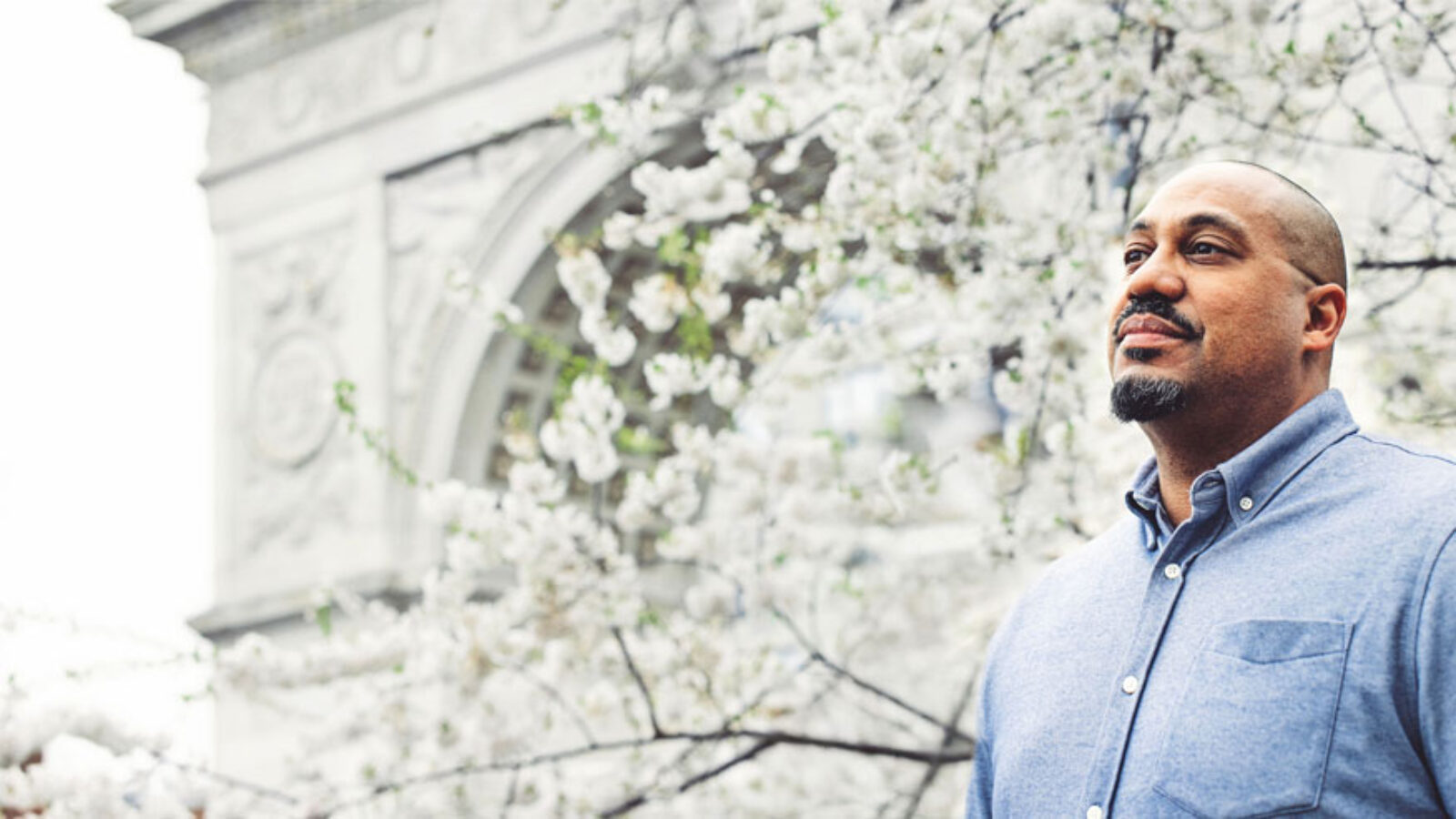Eris Johnson-Smith ’98 is helping close the opportunity gap for students
As the managing director of program for OneGoal New York—a branch of the national nonprofit that helps overlooked students reach their potential—Eris Johnson-Smith ’98 is working to close the opportunity gap for young people in New York City schools.
“OneGoal helps to prepare young people for college and career, transforming the way students experience advising while they’re still in high school, and also during that year after graduation when they’re making the transition into adulthood,” Johnson-Smith said.
Johnson-Smith holds a bachelor’s degree from Hampshire College and a master’s degree from New York University. He’s dedicated his career to youth empowerment, having spent nearly two decades working in public schools. “I’ve spent a lot of time with young people helping them meet their goals,” he said. “It’s been a journey that has kind of selected me as opposed to me selecting it.”
Both Johnson-Smith and OneGoal are pushing back against economic and racial disparities that prevent low-income students, particularly students of color, from receiving the crucial advising support that demystifies the postsecondary process. In New York City and around the country, public schools face a shortage of guidance and college counselors, and only 22% of graduating seniors from low-income communities earn a bachelor’s or associate degree, compared to 67% of students from high-income areas.
OneGoal’s solution is a three-year advising program that begins as a high school elective for student “fellows,” helping them explore college and career pathways. The New York branch has 19 high school partners and 1,600 current fellows, and Johnson-Smith oversees the coaching and training programs for OneGoal-affiliated educators.
He emphasizes the importance of listening closely to students’ voices. “OneGoal is asking young people, ‘What is it that you actually want to do?’” he said. “‘What is it that you want to achieve in this world? What kind of impact do you want to make? And how do you want to have an impact for yourself, but also for your communities and your families?’ The ability for students to actualize and have self-determination is the ultimate of youth empowerment.”
The model is having a tremendous impact. In New York, 88% of OneGoal high school graduates enroll in a postsecondary institution and 77% continue with their education one year after high school. “You can feel really lost in high school, so having a teacher who is invested in your mission and helps you create a plan and execute it once you graduate from high school is very powerful.
OneGoal fellows are typically students in the academic middle—a profile that, Johnson-Smith says, described him when he was a student at Williston. “To be honest, I struggled a little at Williston with self-advocacy and self-doubt, which a lot of young people do,” he said. “But I think it was even more so for me being a person of color in a predominantly white space. Learning how to navigate some of the different challenges that came with that was hard on me.”
Among the benefits of a Williston education were the time management skills that Johnson-Smith honed. “I hated the half-day Saturday classes, but then I went to college and was getting up early on Saturdays to finish homework,” he says. “I grew to appreciate what those Saturday classes instilled in me, which was the sense to take advantage of the time to complete work and get ahead if I could. That, along with some of the coursework and the rigor, prepared me for college life.”
Johnson-Smith acknowledges that this a tumultuous moment to be a high school student today, amid global uncertainty as well as political and social unrest. Still, it’s young people who give him hope, and he encourages older generations to view them as “assets” in shaping society.
“Most of the young people that I am around and interact with are deeply empathetic,” he said. “They believe society should be able to do things, and that people shouldn’t be suffering, and that everyone has the right to live their dreams. We can forget how much positive change has happened in the world because young people dared to imagine what was possible and pushed forward. Even sometimes demanded change. I think it’s a reminder for us who’ve lived [longer] and had more experiences that what our young people have that we don’t is imagination.”

